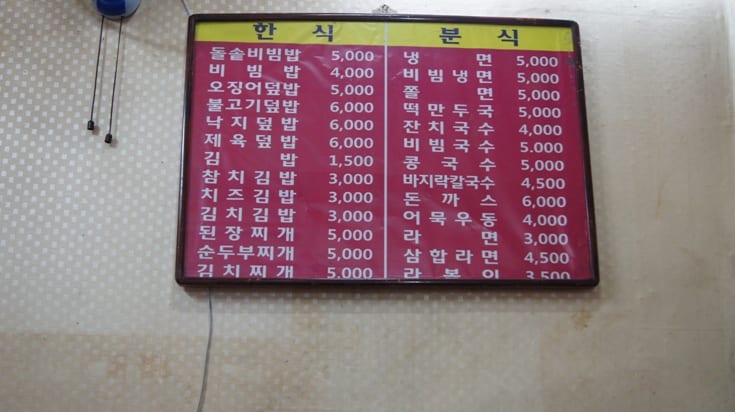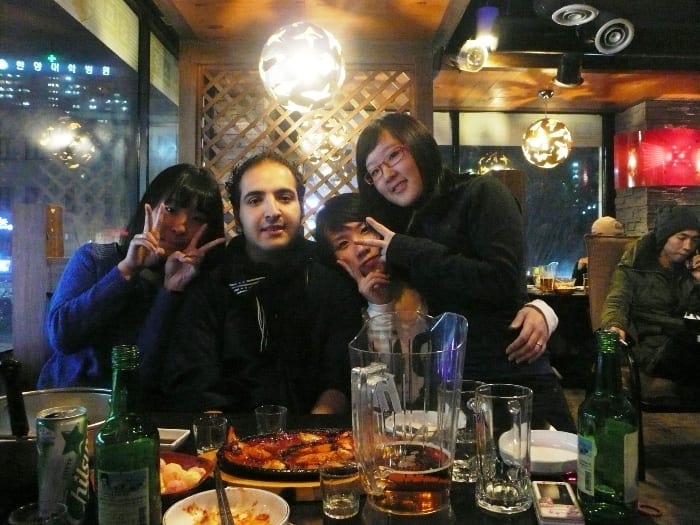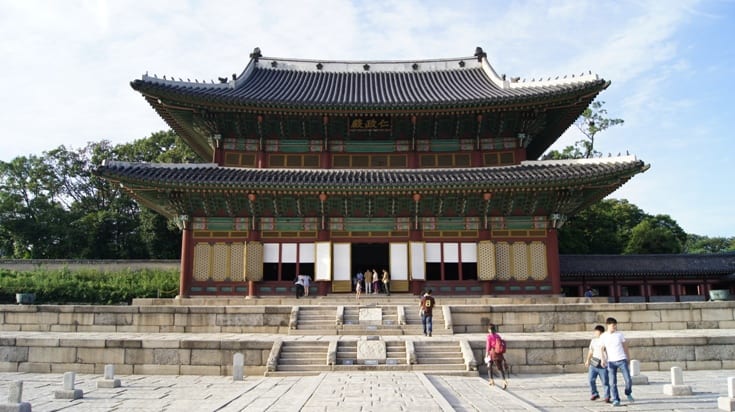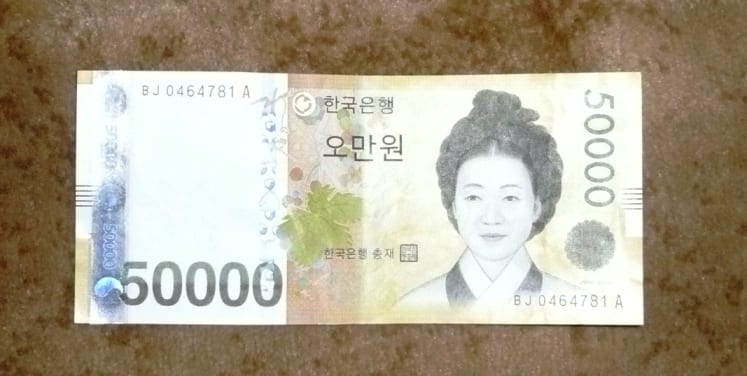You may be fresh out of college and are seeking adventure. You may be in a career and bored out of your mind. Or, you may be really into education and are seeking alternative career options outside of your home country. Whatever your story, year after year, people come to teach English in South Korea not knowing what to expect. Some come realizing they lucked out with a good job and location. Others come and wish they had done their homework before accepting the job.
If you’re reading this list, you might be the former (because you did your homework), good for you! I have been in Korea for over three years and every year I learn something new. Every time I find out something important, I think, “man I wish I knew that before I came.”
Contents
#10 Not All Jobs Teaching in South Korea Are the Same

One of the first things you will notice is that most jobs offer a round the same pay. This gives the illusion that they are all pretty much the same. Far from it! The benefits and working hours are often wildly different depending on the age group you will teach.
A decent company will offer the following:
-Severance Pay (1 extra month pay at the end of the contract)
-Health insurance (usually half paid by you, half by the employer)
-Roundtrip flight (if they will “pay you back” I am suspicious that there is something about the job which might make me want to quit immediately).
-Housing (NOT SHARED. Most should offer a single, furnished apartment.)
-Pension (Many shady places skip out on this. If they don’t offer it, just think, what else are they holding back. Pension is required by law in Korea)
If you get all of these, and 2.2 million won (about 2000 USD a month), that is a decent starting salary (given a 9-5 type schedule). Anything more and you’re off to a great start.
One huge giveaway whether a school is good or bad are the types of questions they ask you in the interview. If a job asks you a lot of education-based questions, that’s a good sign. It shows that they care about the educator in you and they are a legitimate school. If they ask questions about how long you plan on staying, or if you can manage cultural differences well, that’s a bad sign. Getting a new teacher is expensive and a lot of paper work. They want to make sure you don’t quit when you realize the job is not as good as they made it seem over the phone.
#9 You Don’t Need to Learn How to Speak Korean

Korea is super friendly (mostly) towards foreigners. If you don’t speak the language, people will usually try their best to accommodate you. If only that was true in America! Some people are afraid to come because of the culture and language barriers, but really, very few exist.
#8 However, Trying to Learn Korean Goes a Long Way

You don’t NEED to learn Korean, but if you learn some, it is very much appreciated. Look, learning a language takes effort, a lot of it. Everyone is busy, not just you, but if you make a conscious effort to learn the language, you will be rewarded. If you are like most foreigners who come here and learn about a word a week, guess what, you will know how to say near nothing in a year. Learning Korean can help you (with):
–Food: A lot of Korean restaurants don’t have pictures or words in English on their menus. Just learning how to read the words can be a huge advantage as many food words are really just English words written in Korean. For example 치킨 is pronounced “chikin” (chicken). There are so many delicious foods and snacks you will miss out on otherwise.
–Professionally: I have seen this countless times. Some student who doesn’t speak a word of English starts speaking in Korean. The baffled foreign teacher doesn’t understand and either panics and looks for a Korean to help, or tries to reason with the kid in a language he obviously doesn’t understand. Save yourself some stress and study a bit. You might be actually helping the person learn faster if you don’t have to stop every two minutes when you have communication issues.
Currently, I am teaching pre-school, and I understand most of what my students are saying. I can’t stress how grateful I am that I know at least that much.
–Dating: Yes, you knew this one was coming! Many Koreans are not fluent English speakers. If you are a single man or woman, it helps bridge the gap and it is extremely appreciated. Many times, I have been complimented for “knowing Korean well” just by introducing myself or saying other simple phrases in Korean.
#7 Don’t Stay in the Foreign Bubble

One of the things that many people do when they come to Korea is make a bunch of foreign friends. Friends from any country are great and don’t think I am scoffing at a nationality. There is great comfort in being around people who understand where you are coming from. However, you are now living in a foreign country and are missing out on an extremely unique experience if you don’t make Korean friends. Many times, foreigners will complain about things that “would only happen in Korea” without bothering to figure out why things are the way they are. Having Korean friends will often give you an insight on how Koreans think and why.
#6 North Korea is NOT Scary

I am at work and sirens ring. I look out the window. Every car has pulled over, and there is an eerie message in Korean. I honestly expect a missile to blast a hole on the side of the building across from me, but my students laugh, the Korean staff go on as usual, and no one in the street seems phased, except for the drivers that seem frustrated about being late. I am completely baffled. Are you?
No one here is scared of North Korea. The biggest concerns in South Korea are the economy, the prices of education, and whether or not Psy is still at the top of the charts. Contrary to what CNN might show you on the news, most South Koreans, and foreigners who have been here a while think of the DPRK as a really annoying distant cousin. He is irritating and kind of makes a mess to get attention, but you know what, he only visits twice a year, and you put up with him.
I am not saying that war is not a possibility, but North Korea has made threats for the last 60 years. Many of the South Koreans of today weren’t even alive during the war, and have seen very little as far as real action their entire lives. If war does come, so be it, but very few people choose to live in fear.
#5 Travel Around Korea, A LOT!

When I first arrived, I asked what there was to do in Korea. Many people stuck to going out to local bars or visiting Seoul (the capital) and Busan (the beach city) for the weekend. Both are fine places, and I will talk more about Seoul later, but Korea has far more than that to offer. While I also enjoy a nice drink with my friends, you are missing out if that’s all you do. Korea has one of the most fantastic public transportation systems in the world. Given that the country is the size of Southern California, about 90% of the country is accessible over the weekend by bus or train.
For example, did you know that the oldest complete and flawless Buddhist Sutra (The Tripitaka Koreana) is located in Korea and is a Unesco World Heritage Site? How about that every year, the ocean literally parts and the Korean mainland links with Jindo Island. Or that Jeju Island was named one of the new 7 World Wonders of Nature. Put down the drink and get out and explore.
#4 Don’t go to Itaewon so Often

Itaewon-dong is the main foreign district in Korea. You are more likely to find more foreigners than Koreans walking around. While this sounds like a great idea, in theory, the reality doesn’t live up to expectations. At night, it is a grimy run-down neighborhood with too many aggressive (many times military) foreigners with something to prove. While it can be lively in the daytime, it is nonetheless, a foreign bubble that too many people can’t seem to get out of. They come to Korea to experience Korean culture and spend all of their free time in Itaewon.
Now, let me be fair, there is probably no better place to get a wonderful variety of non-Korean food than here. Also, there are a few foreign food marts here which are awesome if you are looking for something not found in a Korean supermarket. However, limit your visits. When I went to Seoul for the first time, this was the first place I was told to go to. I recently made a list of the best things to do in Seoul and Itaewon barely cracked the top 30 at #28. If I expanded that list to all of Korea, it would probably tumble to the 70s.
Learn More About What It Is Like to Teach in South Korea Here
#3 Live in Seoul

My first year in Korea was spent in the city of Daejeon. While I still have friends there, and I enjoyed myself, Seoul is a far better option. I went to visit Daejeon with my girlfriend last year, and I showed her pretty much all the highlights in a single weekend. She couldn’t help but wonder, “What did you do on your weekends?” To which I responded very casually, “I went to Seoul!”
Seoul is the capital of Korea. However, this means a lot more than it would in other countries, as 25% of the population lives inside the central city and 50% in the immediate metropolitan area. Whenever Koreans are hoping to further their career, start a business, or go to university, they go to Seoul. It is not only the main city, it is THE city. I have traveled quite extensively to every major city in Korea and can say with confidence that there is twice as much to do in Seoul than in every other city combined.
Now, some recruiters will tell you that getting a job here is hard… they are lying to you. Keep looking.
#2 Bank with Citi Bank

Citi bank, as far as I know, is the only American bank (sorry non-Americans) that has a Korean Subsidiary Branch. Now, that doesn’t mean it’s the same bank. You still need to get a Korean account. However, if you are like most people, you will want to wire money to your American account. Most banks charge anywhere from $35-$53 per transfer. I made the mistake of paying about $50 each month my first year by banking with IBK (Industrial Bank of Korea). Citi has a “Citi global transfer” which is free Citi to Citi. Bam, saved $600 a year. Make sure to open a Citi bank account in the US before coming to Korea.
#1 Many People don’t take the Teaching in South Korea Seriously, Don’t let it Phase you

When you start teaching in South Korea, you will surely find people that don’t want to be here. If you have ever had a job anywhere in ANY profession, I am sure you have noticed that people will complain about everything. In Korea, you will get to:
-Teach wonderful and studious children (I teach kindergarten and elementary)
-Get very decent pay with a 3% tax rate (no joke)
-Have a bunch of benefits
-Live in a wonderful country with extremely friendly people
And yes, people will still complain about the job, about living here, about… everything. Whiny people exist everywhere, don’t let it phase you. Surround yourself with positive people who like being here and you will have a very pleasant experience.
Headed to teach in South Korea? Be sure you pick out the best backpack for your travels with our guide for all of your adventures around Korea, Asia and beyond!
This article was originally published on Art of Adventuring, then moved to WW in February 2017.
Julio is a Mexican-American from Los Angeles, California. After graduating college with an aerospace engineering degree, he decided that he wasn’t ready for that career yet. He turned down job offers to focus on personal goals of traveling and learning a new language. When he found out that he could teach English in South Korea, he jumped at the opportunity as he would also be able to pay down his financial debt in the process. Follow Julio on Twitter, Facebook, and his blog Travel World Heritage.
Pin For Later:

